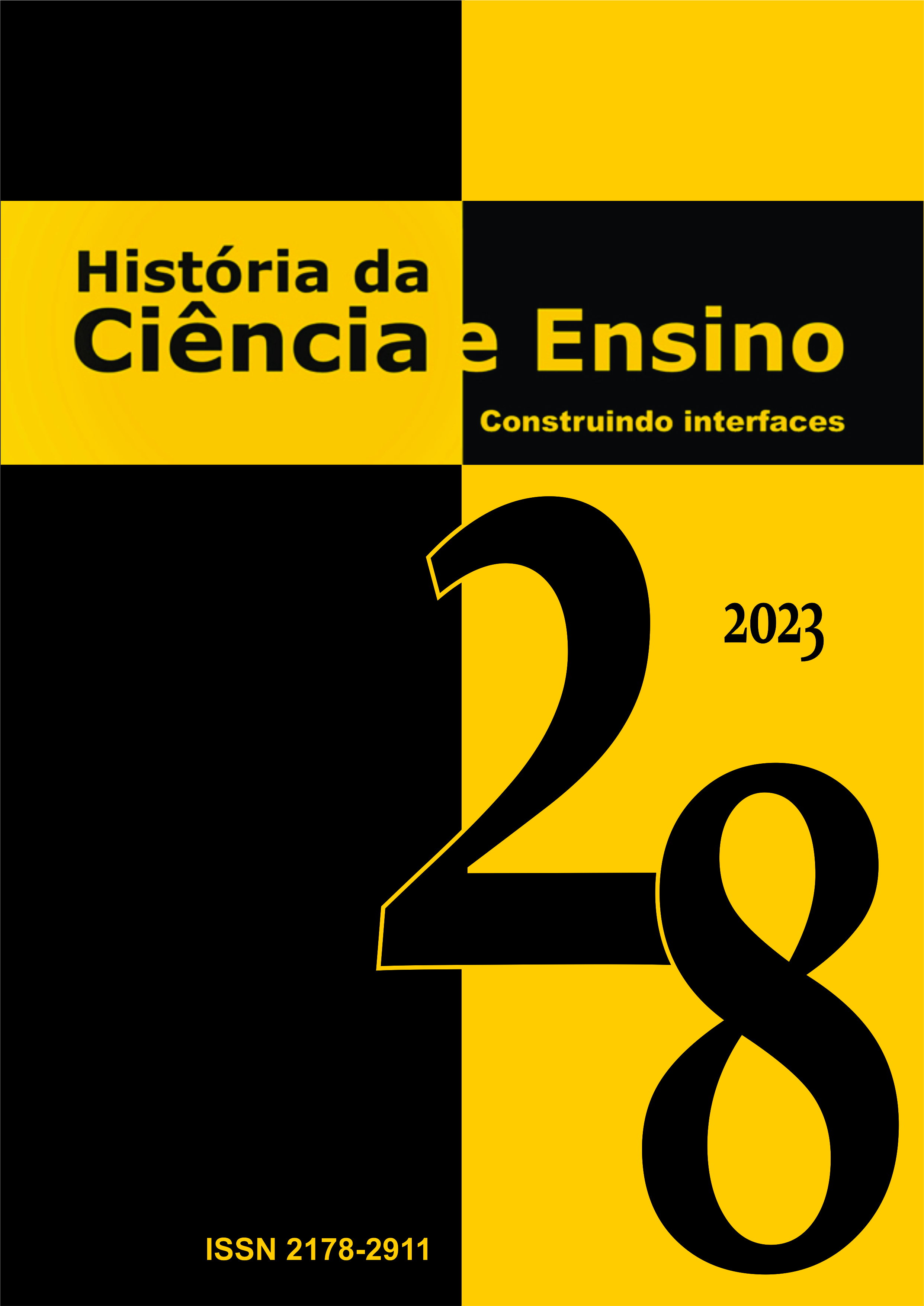A study on the concept of gene transmission from a historical-dialectical materialist perspective
DOI:
https://doi.org/10.23925/2178-2911.2023v28p28-44Keywords:
Scientific concept, philosophical currents, historicityAbstract
The study of the transmission of characteristics from one generation to another, for most of human history, was about heredity. Aware that by understanding the historical and contradictory development of this scientific knowledge it is possible to apprehend units that indicate the integration of this concept in a conceptual network of Biology, as a human activity, we based the research on the historical and philosophical study of the concept of gene transmission, especially in its conceptual, epistemological, ontological and socio-historical units, as well as in the establishment of the relationship between this concept and the main philosophical currents of thought of Biology. To do so, we adopted the historical-dialectical materialist logic (MHD) as a theoretical-methodological basis, through which we conducted documentary and exploratory analyses of human productions on the theme and articulated them to the historical and philosophical moments essential to the apprehension of the genesis and development of this concept. We conclude that the construction process of the concept of gene transmission was determined by historical conditions and, therefore, is ideologically compromised. Throughout the study, we evince a movement of approximations, relations and synthesis of the essential elements to understand the essence of the concept of gene transmission.
References
Antônio Fernandes Nascimento Júnior. “Construção de Estatutos de Ciência para a Biologia numa Perspectiva Histórico-Filosófica: uma abordagem estruturante para seu ensino” (tese de doutorado, Universidade Estadual Paulista, 2010), 437.
Elisa Vaz Borges Silva, “O pensamento conceitual e a formação de professores de Biologia: a transmissão gênica como objeto do conhecimento” (dissertação de mestrado, Universidade Federal de Goiás, 2020).
Ernest Mayr, Isto é Biologia: ciência do mundo vivo (São Paulo, Companhia das Letras, 2011).
Ernest Mayr, O desenvolvimento do pensamento biológico: diversidade, evolução e herança (Brasília, 1998) 71.
Gregor Johann Mendel, “Experiments in a Monastery Garden” American Zoologist 26 (1986): 749-752;
Henri Lefebvre. Lógica formal lógica dialética. (Rio de Janeiro: Civilização Brasileira, 1991), 120p.
John Alexander Moore, “Science as a way of knowing – Genetics” American Zoologists 26 (1986): 583-747.
José Carlos Libâneo. Conteúdos, formação de competências cognitivas e ensino com pesquisa: unindo ensino e modos de investigação (São Paulo: Cadernos Pedagogia Universitária, 2009), 25.
Karel Kosik. Dialética do concreto. (Rio de Janeiro: Paz e Terra, 2011).
Karl Marx & Friedrich Engels. A ideologia alemã (São Paulo: Boitempo, 2007).
Karl Marx & Friedrich Engels. A ideologia alemã (São Paulo: Boitempo, 2007),
Lourdes Aparecida Della Justina. “Ensino de genética e história de conceitos relativos à hereditariedade” (dissertação de mestrado, Universidade Federal de Santa Catarina, 2001), 145;
Maria Amália Andery et al., Para compreender a Ciência: uma perspectiva histórica (Rio de Janeiro: Espaço e Tempo, 1996).
Pavel Vasilyevich Kopin. A dialética como lógica e teoria do conhecimento. (Rio de Janeiro: Civilização Brasileira, 1978).
Wilson Antônio Frezzatti Júnior, “Haeckel e Nietzsche: aspectos da crítica ao mecanicismo no século XIX” Scientiae Studia 4 (2003): 435-461.


